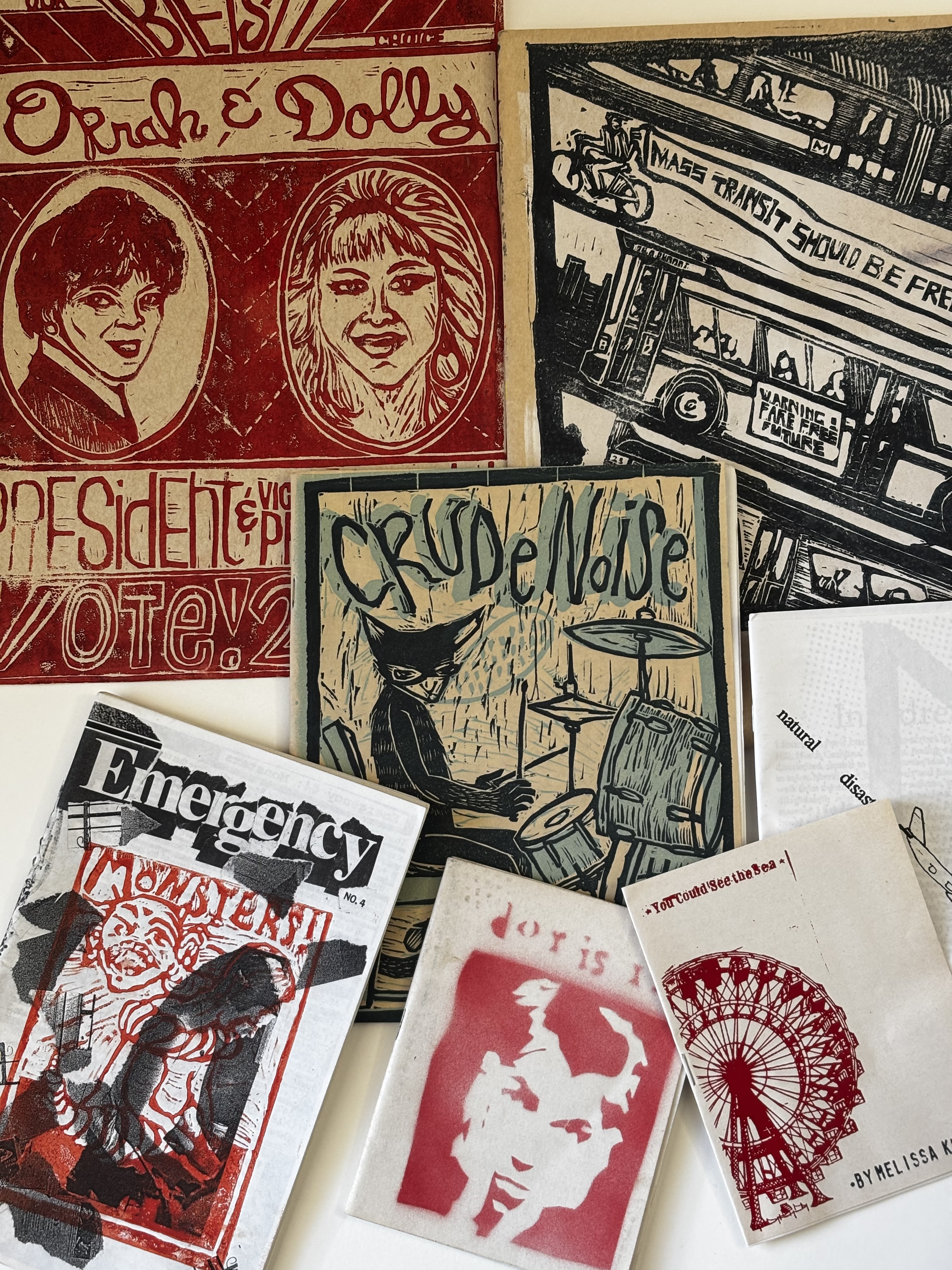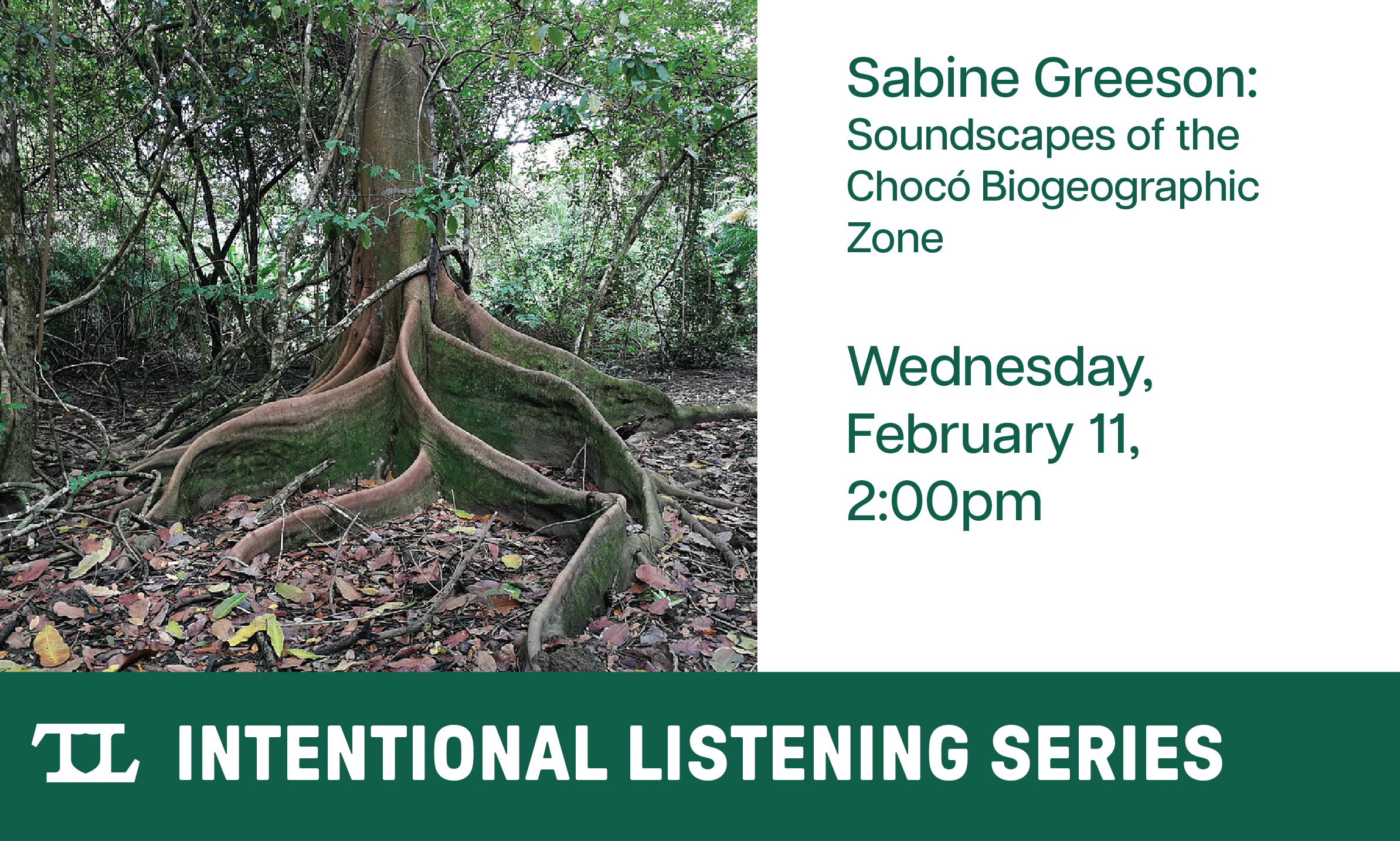Zine Your Research: A New Podcast from Tulane Libraries Launches Sept 26
Published

Tulane University Libraries is proud to announce the launch of Zine Your Research, a new podcast series exploring the intersection of zine culture and academia.
Zines, which are DIY and self-published works, have long thrived in countercultural movements, providing a voice for communities and perspectives outside the mainstream. Their power lies in their accessibility, immediacy, and irreverence for traditional publishing structures. But what role can zines play in the world of scholarship? How might libraries and universities engage with them without stripping away their cultural meaning?
Zine Your Research takes up these questions by inviting librarians, archivists, faculty, and students into conversation. Across the series, host and researcher Katherine Hicks, along with producer/audio engineer lisa Hooper, guide listeners through the history, materiality, and ethos of zines. What emerges is not simply a story about alternative publishing, but a broader conversation about how knowledge is created, shared, and preserved.
“As someone with a bit more background knowledge on zines than the average person,” said Hicks, “one of the most exciting things for me about this project was bringing in a variety of perspectives on the topic. We not only talked to people with expertise in regional zine histories, but also a wide range of different research disciplines. The result, I hope, is that anyone- regardless of their own history with zines- will be able to find something new and thought-provoking in this series."
The opening episode, What is a Zine?, sets the stage with Agnes Czeblakow, Curator of Rare Books and Head of Research Services at Tulane University Special Collections. Czeblakow traces zine culture back to late 19th-century amateur press associations and mid-20th-century fan magazines, showing how zines grew into the activist and creative movements of the 1960s and beyond. Her overview underscores how the roots of zines mirror broader struggles over access to publishing and representation.
Later in the series, Zines as Queer and Feminist Pedagogy explores how zines document histories that are often left out of mainstream archives. Bernadette Floresca and Ellie Goecken of the Newcomb Archives and Vorhoff Collection highlight the ways queer and feminist creators have used zines to tell their own stories, from early fanfiction communities, like Star Trek's Spockanalia, to the Riot Grrrl movement of the 1990s. Their conversation demonstrates the value of these ephemeral works as invaluable primary sources and their ongoing impact on teaching, research, and archival practice.
In Bibliodiversity in Latin America, Teresa Clifton, Special Collections & Engagement Librarian at the Doris Stone Latin American Library and Research Center, examines how colonial restrictions on publishing created fertile ground for DIY traditions. Pamphlets, handmade books, and later cartoneras emerged as vibrant alternatives to sanctioned publishing, paralleling the development of zine culture in Europe. Clifton’s perspective demonstrates how resistance to authority has historically sparked new forms of expression across the Americas, highlighting the global scope of zine traditions.
The series also stretches into unexpected territory. In Scientific Communication Ecology & Evolutionary Biology PhD student Alanna Frick and Science & Engineering Librarian Kim Wheeler share how they use zines to break down complex ecological and biological research. Alanna explains how the zine format pushes her to think critically about her audience and encourages other scientists to challenge assumptions about how research should be presented and who it should reach s, they encourage future scientists to think critically about their audience and accessibility, challenging assumptions about how research should be presented and who it should reach. Similarly, the episode on Public Health illustrates how zines can offer community-centered ways of sharing life-saving information, foster trust, and developing more responsive forms of communication.
One of the project’s key revelations is the interconnectedness of Tulane’s libraries and archival collections. While each collection has its own focus - rare books, feminist archives, Latin American pamphlets, scientific research, health sciences - together they tell a story about the ongoing relevance of DIY publishing. Zines serve not only as cultural artifacts but also as catalysts for reimagining what scholarship can look like and who it can reach.
Ultimately, Zine Your Research challenges assumptions about where research belongs and how it should be shared. It advocates for a model of scholarship that is more creative, more accessible, and more grounded in the diverse communities it aims to serve.
Zine Your Research will be available on Spotify on September 26th.
Join us on September 26, 3–4 pm in the Newcomb Archives Reading Room, Malkin Sacks Commons, third floor, for the launch of our new 6-episode podcast series. Listen to the first 3 episodes, "What is a Zine?", "Zines as Feminist Pedagogy" and "Bibliodiversity in Latin America", meet the guests, see the collections, and chat about zines.


